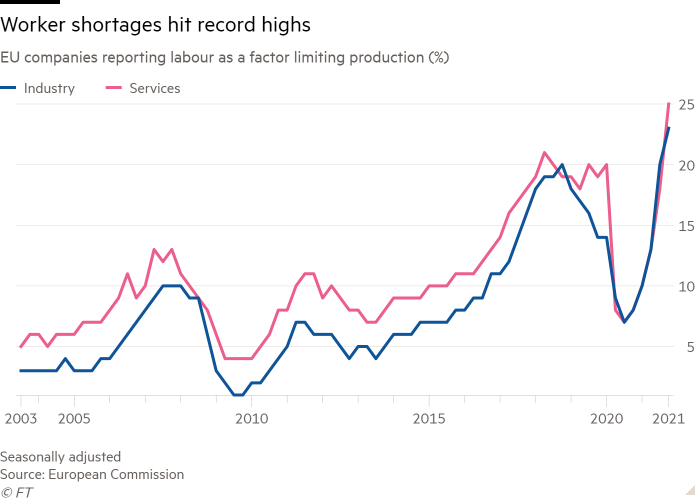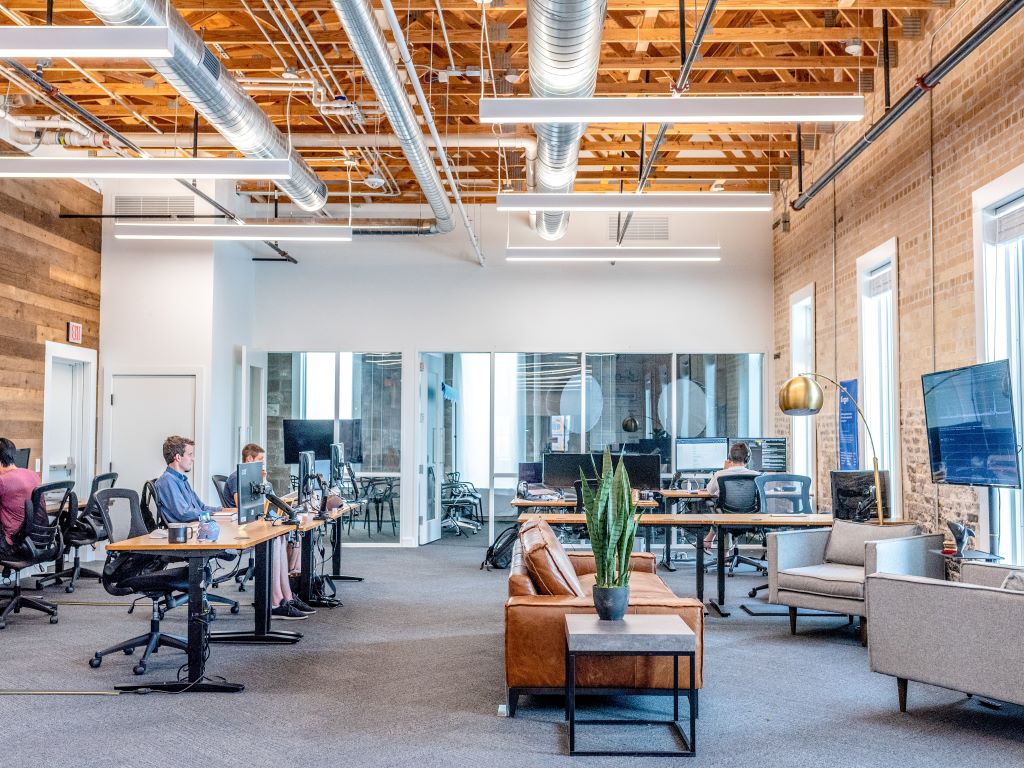It’s no secret that Europe’s post-pandemic economy is facing a worker shortage. It’s becoming increasingly hard to find certain skilled workers, especially IT workers and healthcare workers. That’s why some employers are turning to unconventional methods to attract workers. But will big cash bonuses really work?
What else matters this week?
How leaders can move beyond greenwashing towards real change. U.S.’ Biden administration takes new steps to address job quality amid the Great Resignation. People don’t believe that working hard will lead to a better life, survey finds. What workers in 10 countries really want. We’ve got a full breakdown of all the top headlines you can’t miss this week.
#1. Cash bonuses for interviews? A sign of the times as Eurozone jobs boom.
Europe’s post-pandemic economy is facing a worker shortage. It’s becoming increasingly hard to find certain skilled workers, especially IT workers and healthcare workers. That’s why the founder of Deutsche Familienversicherung, a fast-growing insurer based in Frankfurt, is turning towards unorthodox methods. Stefan Knoll is offering cash bonuses for interviews: 500 Euros for the first interview, 1,000 Euros for the second, and 5,000 Euros for those who complete a six-month probation. “It is particularly difficult to find anyone with IT skills,” he told Financial Times. “We compete with giants like Allianz who can easily hire hundreds of people around the world — but we are not interested in hiring people in India, we want people here in Frankfurt.” The speed of the rebound has been remarkable since the 2008 financial crisis. EU unemployment has been at an all-time low, reaching 7.2 percent in November. Read more at the Financial Times.

#2. Jobseekers are boosting their applications with video CVs.
For years now, hiring has shifted towards virtual interviews and processes. As a result, a growing number of candidates are boosting their applications with video CVs to help win the job. The demand for video resumes is continuing to grow. According to a LinkedIn survey in 2021, 79% of hiring managers thought that video had become “more important” than ever before for vetting candidates. That same survey found that 61% of job seekers thought “a recorded video could be the next iteration of the traditional cover letter.” Read mor at the BBC.

#3. Germany wants to attract 400,000 skilled workers from abroad each year.
Facing demographic imbalance and labour shortages in key sectors, Germany’s new coalition government is looking to attract hundreds of thousands of workers from abroad each year. "The shortage of skilled workers has become so serious by now that it is dramatically slowing down our economy," Christian Duerr, parliamentary leader of the co-governing Free Democrats (FDP), told business magazine WirtschaftsWoche. "We can only get the problem of an ageing workforce under control with a modern immigration policy... We have to reach the mark of 400,000 skilled workers from abroad as quickly as possible.” German officials estimate that the labour force will shrink by more than 300,000 in 2022 as more older workers are leaving the workforce than younger ones entering the workforce. By 2029, that gap should widen to more than 650,000. After decades of low birth rates and uneven migration, Germany’s public pension system is in crisis. Fewer employees are burdened with financing pensions for a growing number of retirees. Read more at Reuters.

#4. Meta unveils a new supercomputer to rule the metaverse.
One supercomputer to rule them all? Meet AI Research SuperCluster. That’s the name of the AI supercomputer built by Meta, Facebook’s parent company. By mid-2022, it’ll be the world’s fastest computer. The computer will ingest vast amounts of information and process it like a human brain would. That includes contextual understanding, according to Meta’s VP of AI. So how will a computer like this be used? The computer will "seamlessly analyze text, images and video together,” and augmented reality features, near-instantaneous flagging of harmful content – to start. The computer will help build experiences in the metaverse. Read more at the Wall Street Journal.

#5. Top HR trends for the 2022 workplace.
The world of work is fast-moving in 2022. Here are some of the top HR trends for the 2022 workplace, as reported in Forbes:
- The future of work? Employee wellbeing.
- Focusing on employee wellbeing can stem the Great Resignation
- Hybrid work is key for most workers
- Employees want to work for a company with strong values
Read more at Forbes.




